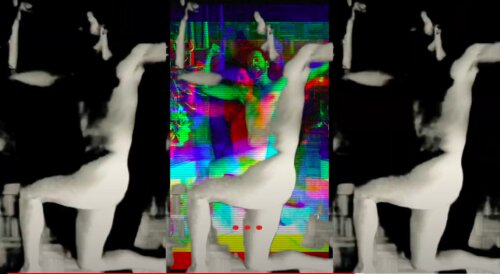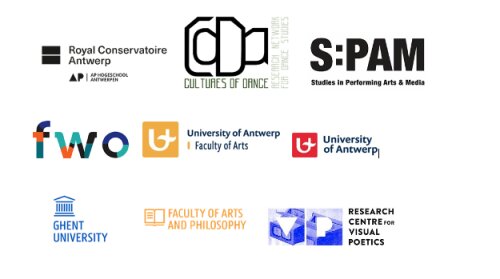
Excerpt from One, Two, Three, Comrade Dance With Me (2021), video performance by Igor Koruga
When: Saturday 21 of May 2022, 10:00 – 18:00
Where: Royal Conservatoire Antwerp, Desguinlei 25 – 2018 Antwerpen, Gele Zaal
Free, but register here
Arguably more than ever, the connection between dance and research has taken center stage in different segments of the dance field, including higher education, the professional performing arts, and academic scholarship. Despite the growing acknowledgment that dance can incite new forms of experimentation or generate alternative modes of knowledge, the actual shape that research in dance can take is still a topic of debate. The specific requirements for doing research in dance (or even for calling oneself “a dance researcher”) are hardly defined, which leads to substantial questions about how (or if) dance should legitimize itself as a valid research practice on its own terms.
During this Research Day, we want to address these issues by gathering various speakers who will provide, each from their own background and expertise, different perspectives on the functions and forms artistic research in dance can take. The aim is to tackle various questions that are fundamental to research in dance as they can be said to steer its future directions, such as: are there general characteristics to research in dance beyond the particularity of distinct projects or practices?; does research in dance necessarily need to bridge discourse and practice?; what role do (academic) institutions play in the ecosystem of artistic dance research?; what are the conditions one must meet in order to conduct research in dance? By raising these questions, we want to move towards an expanded and possibly more diverse understanding of those conditions that undergird research in dance, both within and outside of institutional frameworks.
This Research Day is the second in a series initiated by the Master Dance team at the Royal Conservatoire of Antwerp (RCA) in collaboration with CORPoREAL, the interdisciplinary research group for dance, music, and drama at the RCA and the Dance department of RCA. This edition is co-organized with CoDa | Cultures of Dance, the Research Network for Dance Studies funded by the Research Foundation Flanders (FWO) and S:PAM - Studies in Performing Arts and Media (Ghent University).
WITH THE SUPPORT OF
